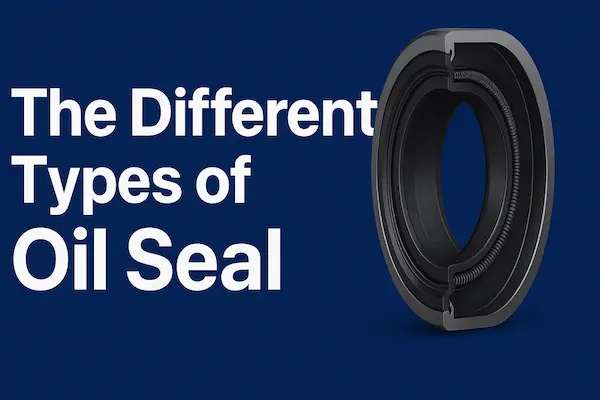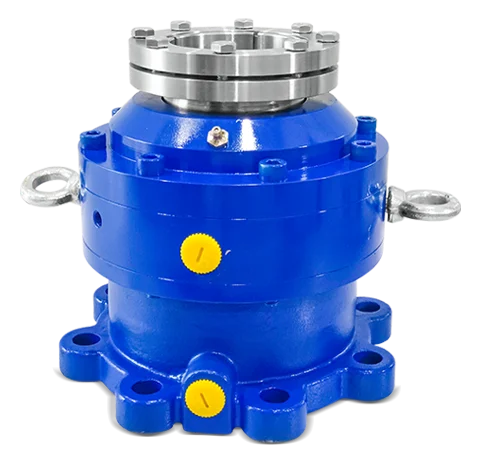Posted At: May 21, 2025 - 1,630 Views

Oil Seals – Everything You Need to Know
Oil seals (also known as shaft seals, lip seals, or grease seals) are essential components in rotary machinery. Their primary function is to prevent lubricant leakage while keeping out contaminants such as dust, dirt, and water. In industrial systems, a reliable oil seal is critical to the longevity and performance of bearings and rotating shafts.
What Is an Oil Seal?
An oil seal is a mechanical barrier fitted around a shaft, designed to retain lubricants within the housing and exclude external impurities. It protects bearings (ball, roller, or sleeve) by creating a tight interface between the moving shaft and the stationary housing. Over time, a high-quality oil seal reduces maintenance, minimizes wear, and boosts equipment reliability.
Why Oil Seals Matter
Oil seals serve multiple critical purposes:
Lubricant Retention: Maintains the needed oil or grease in the system under dynamic conditions.
Contaminant Exclusion: Prevents ingress of dirt, water, and other foreign particles that can degrade bearing performance.
Improved Bearing Life: By effectively sealing, they avoid premature bearing failures, reducing downtime.
Pressure Resistance: In many applications, seals handle pressure differentials, oil splash, or high-speed rotation.
Types of Oil Seal — Oil Seal Types Explained
There are many types of oil seal, designed to suit different operating conditions and applications. Here are some of the most common:
Radial Lip Seals
The most common oil seal type.
Uses a flexible lip that presses against the rotating shaft to form a tight seal.
Ideal for most industrial machinery and hydraulic systems.
Axial Seals
Designed to seal in a static (non-rotating) direction.
Useful where components remain fixed but still need sealing.
Tandem Seals (Duplex Seals)
Two seals placed in series (one behind the other).
Provides enhanced protection against leakage — great for high-pressure or critical applications.
V-Ring Seals
Made of a flexible rubber ring that stretches over the shaft.
Rotates with the shaft and offers excellent resistance to contaminants like dirt, water, and splash.
Mechanical Face Seals
Use flat sealing faces that press together mechanically.
Suitable for higher pressure, higher temperature, or more demanding applications (e.g., pumps, compressors).
Multi-lip Seals
Can have dual, triple, or more lip designs.
Add secondary lips (dust lips) to improve sealing against contaminants.
Metal-Cased vs Rubber Seals
Some oil seals have a metal outer case for structural rigidity.
Others are all-rubber or polymer for flexibility and better contact.
Spring-Energized Seals
Include a garter spring that holds the lip firmly against the shaft.
Ensures stable sealing even under pressure or temperature changes.
Oil Seal Materials & Design Variants
The material of the oil seal is just as important as its shape. Common materials include:
Nitrile (NBR): Good resistance to oil and moderate heat.
Fluororubber (FKM / Viton): Excellent chemical and high-temperature resistance.
Silicone (VMQ): Great for extreme temperatures; flexible, but not always ideal for high pressure.
PTFE (Teflon): High chemical resistance and low friction; often used in demanding applications.
Seal design (lip shape, number of lips, case type) also varies according to application.
How to Choose the Right Oil Seal
Selecting the correct oil seal type requires analyzing several factors:
Operating Conditions: What are the temperature, speed, and pressure?
Shaft Configuration: Diameter, finish, and material of the shaft matter a lot.
Fluid Characteristics: What lubricant is used (oil, grease)? Is there contamination risk?
Application Environment: Dusty, wet, chemical-rich, or clean environment?
Space Constraints: Is there enough radial and axial space for the seal design?
Maintenance Requirements: How easy should it be to inspect or replace the seal?
According to NBC Bearings, common configurations include single-lip, double-lip, axial or spring-energized designs.
Common Oil Seal Failure Causes & Prevention
Oil seals can fail due to:
Wear & Tear: Over time, lips can degrade or lose their shape.
Incorrect Installation: If not installed properly, the lip lip-contact or spring can be compromised.
Shaft Damage: Rough or scratched shafts wear out the seal lip quickly.
Temperature Extremes: Material may harden or lose elasticity.
Contamination: Dirt or debris inside the seal may cause leaks.
Prevention Tips:
Use the correct material for the given temperature and chemical conditions.
Ensure proper installation (correct orientation, no damage during fitting).
Maintain good shaft finish and avoid burrs or roughness.
Regularly inspect and replace seals before they degrade significantly.
Why Choose QMSeals for Your Oil Seals
At QMSeals, we deliver precision-engineered oil seals optimized for:
Longevity under demanding industrial conditions
Low friction and efficient sealing
Wide temperature and chemical compatibility
Rugged design — with options for multiple lips or spring-energized lips
Our seal experts will help you choose the right oil seal type for your application, balancing performance and cost with reliability and lifespan.
Conclusion
Understanding the types of oil seal helps you make better decisions for your machinery — whether your priority is oil retention, contaminant exclusion, temperature resistance, or durability. QMSeals offers a wide range of oil seal types, with expert support to choose and optimize based on your system’s demands.
Feel free to reach out to our technical team for a seal selection consultation — we’ll help you pick the perfect oil seal for your needs.


